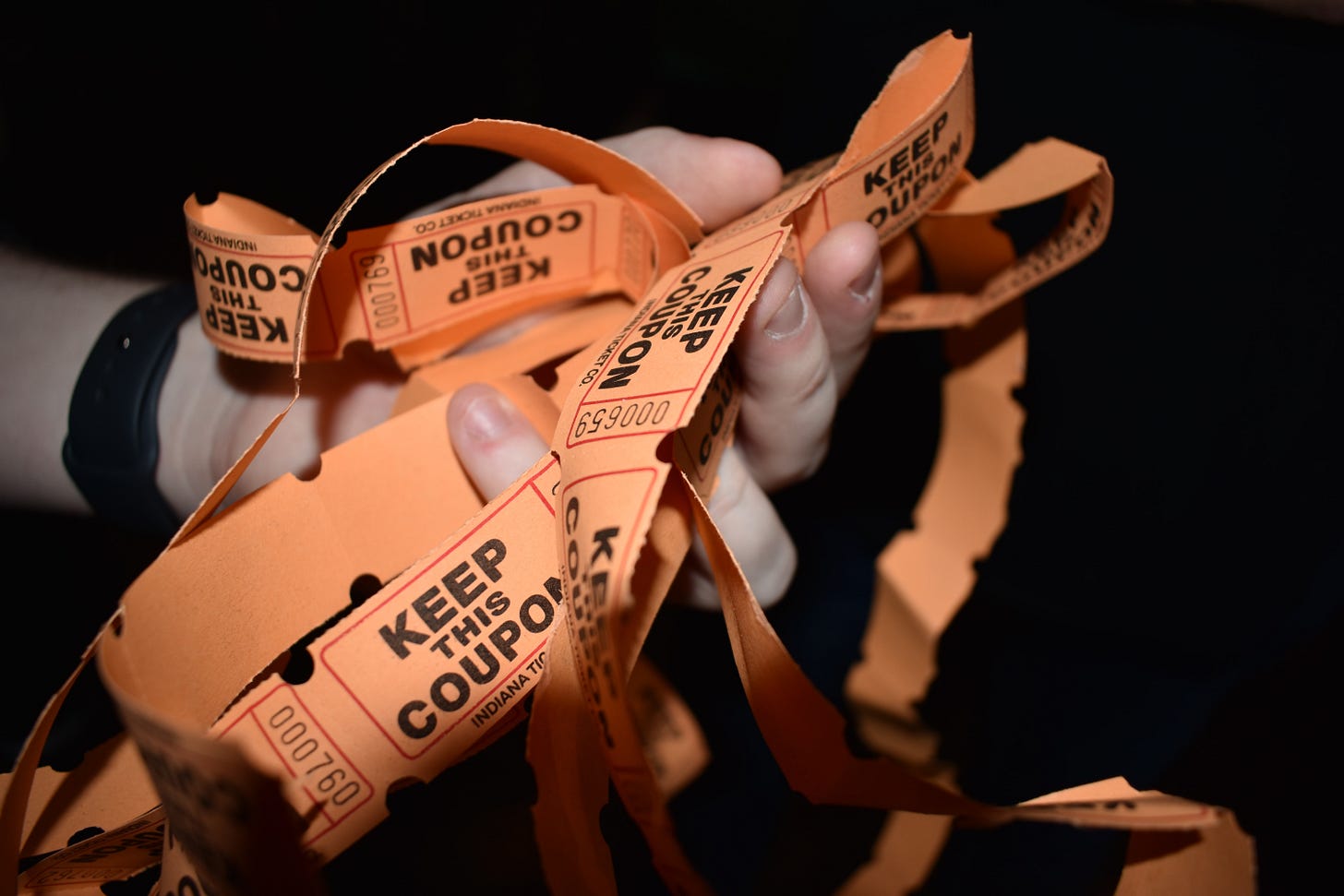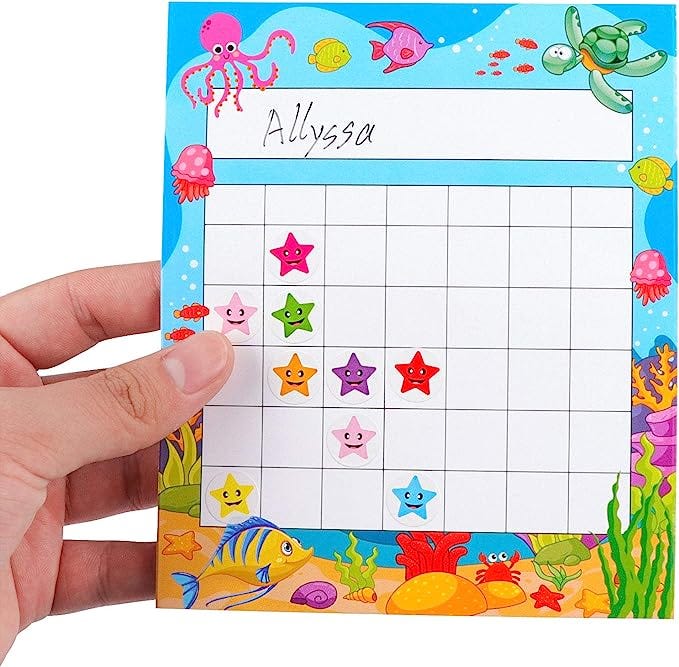How to bribe yourself to do more tech interviews
Motivate yourself to interview more for career growth by making interviewing more rewarding -- even when you don't get an offer
I heard a good perspective on interviewing from Jules Walter on Lenny’s Podcast. He said:
“The other skill that I’ll also call out, which nobody talks about for some reason, is interview skills. You know, because so much of what gives you a chance to become better as a PM is working at a great company. And how do you get that job? …. [by] becoming good at interviewing.
So if you think about my career, getting into Slack changed my trajectory. And I was able to do that because I got slightly, somewhat good enough at interviewing.”—Jules Walter on Lenny’s Podcast
Jules is right that it’s rare to think about interviewing as a fundamental career skill. People often see interviewing as just a task. Many people only interview when they dislike their jobs or have lost their jobs.
However, interviewing can also be seen as a key ongoing practice for your career, just like networking, side projects, and reading.
And, like Jules says, becoming good at interviewing and taking more chances on yourself can lead your career into places it never would have gone otherwise.
People tend to worry more about losing things they have (loss aversion) than things they could have had, but in any period of your career when you’re not interviewing periodically at a high level, you could be missing out on career-changing opportunities.
Like many healthy routines, though, interviewing can be challenging and hard to motivate yourself to do. Let’s consider how it might be possible to encourage yourself to interview more despite these challenges.
Tech interviewing is hard
It’s no secret that tech interviews can be very difficult.
Tech interviews are very demanding and offer no guarantees.
They require lots of time for preparation and to complete the actual interviews.
Rejection can be painful and embarrassing.
The rewards seem all-of nothing — if you don’t get an offer, it can seem like that gargantuan effort to do well in the lengthy interview process went to waste.
However, adapting to these difficulties and interviewing regularly can really benefit your career.
Interviewing more often is one of the most powerful ways to up-level your career
Interviewing regularly — if you aren’t already doing it — can massively accelerate your career. It shows you what’s out there and gives you a chance at becoming part of it.
People who are comfortable and skilled at interviewing tend to end up where they want to be; people who are afraid of it and don’t engage in it enough often end up sidelining themselves over time.
Each time you complete the interview process for a new role, it’s like you’re buying a raffle ticket that might completely change your career and accelerate you into new territories of tech, responsibilities, culture, and networks. People who “buy” more of these tickets will generally “win” more such opportunities.
Why let someone else no more qualified than you are beat you to an opportunity, when the only thing they did differently was making a little time to interview?
If interviewing is so great, how do you motivate yourself to do it?
I won’t pretend that interviewing isn’t hard. It can be very harsh, particularly in the current tech job market. However, there are some things you can do that might make it less negative and maybe even fun on the balance.
Here are some wide-ranging strategies for making interviewing rewarding enough to enjoy the process, even when you’re rejected. Maybe one of them will work for you.
Get competitive with your competition for the roles
The structure of tech interviewing doesn’t do much to promote healthy competition. Usually, you don’t even know who else is competing with you for the role. The company almost always hides this information from you.
Doing lots of interviews can feel like going up against a companies all alone and getting brutal all-or-nothing decisions over and over. You can feel the disparity in power between yourself as an individual and these large companies with the power to reject you.
What about, instead, competing with the other people interviewing for the roles? Sure, they might be stronger in certain areas, but they’re human, too. You can even bet that some of them don’t have good Github commit histories! A few of them aren’t great at system design interviews. Many don’t have an online presence. Probably, several of them don’t come across well in behavioral interviews. They might not prepare the kinds of perceptive questions you prepare before interviews.
On the other hand many of your competitors might have stronger company pedigrees or more experience in the role. How will you measure up to that?
You might be able to beat them and win the offer, if you put in the effort. Thinking about them as your competition might be more motivating than just competing against the company’s inanimate “bar.”
Competing with the other candidates can also give you ideas for things you can do that they might not be doing. You can even scope out some of your likely competition for roles on LinkedIn and Twitter to put a face to the people you might be competing with for roles.
Many of you reading this post might be one other's competition as engineering leaders!
This mindset can shift interviewing into a fair — and even fun — fight between you and other individuals.
Use interviewing to become better in your current role
Some people hold themselves back from interviewing at any point before they completely start to hate their jobs or have lost their jobs because they think that it’s disloyal to their current company to take other interviews.
That doesn’t capture the full picture. There are many ways that interviewing — done right — can make you better at your current job.
Interviewing helps you to know you are where you want to be, if you’re deciding to stay after seeing what else is out there.
Interviewing keeps you honest about the impact you are creating in your current role (by giving you periodic check-ups on how confidently you can discuss this impact).
Nothing quite motivates you to take actions that would make for great STAR stories … like having behavioral interviews that will ask you for STAR stories.
Interviewing gives you a window into how other companies’ technology, leadership, culture, and philosophy.
You might get good advice on challenges you are facing or good insights into what works in engineering leadership from the people who interview you.
Not desperately needing your current role (because you’re comfortable interviewing) can help you to enjoy it more. Knowing you have options can enable you to take more risks and ask for what you need in your current role.
Obviously, don’t interview so much that it interferes with doing your job. But a little interviewing, even at a casual level, can help to enhance your performance in and enjoyment of your current role.
Use interviewing to learn how to hire well
Speaking of interviewing helping you in your current role — if you are in a position where you will be hiring, interviewing periodically yourself can be especially valuable.
Hiring is an extremely important part of being an engineering leader. You’re evaluated on your team’s performance as a leader, and you’re responsible for building and maintaining that team, partly through hiring. Your hiring process has an impact on the quality of candidates that you attract, select, and retain.
Each interview you complete adds to your understanding of how other companies hire.
You get to see what the standard, accepted practices for interviewing are and when it works —or doesn’t — to deviate from those standards.
As I touched on in my previous post, there’s nothing like actually trying to put yourself in someone’s shoes to understand their perspective. By actually going and interviewing, you get to experience what it feels like to go through the interview process.
You experience firsthand which practices indicate that companies value their people (and candidates) or that they take interviewing, culture, and people processes seriously.
On the other hand, you can also pick up on interviewing practices that cause a company seem arrogant, exploitative, or disorganized.
You can see what makes the difference between you wanting to join someone else’s team or not.
This knowledge can be put to good use in your own hiring process.
Use interviewing to network
I saw a video on Amy Miller’s channel about “Is an Unsuccessful Interview a Waste of Time?” She had some interesting advice:
“Job seekers — I’m about to give you some homework…. I want you to go into your next interview — or next several interviews — with a plan…. hopefully come out of it with an offer, but I also want you to come out of it with one new network connection.”—Amy Miller
She points out that interviews help you to meet other people in your field and industry, some of whom you might cross paths with again in your career. If you felt you connected with someone during an interview, she suggests to “let the dust settle” if you didn’t get an offer, and then, after a few weeks, reach out to that person, for example, with a LinkedIn connection request thanking them for their time connecting with you in the interview and asking if they’d like to stay in touch for the future.
“This helps you expand the people in your circle than can in the future maybe get you where you’re trying to go next.”—Amy Miller
It’s not a bad idea. Probably try this primarily with people whom you know or suspect gave you positive interview feedback, so they don’t feel put on the spot or uncomfortable by being contacted by someone they rejected.
There are usually plenty of interviews that go well — it’s often just one interview that held you back from getting an offer. Not much harm in just asking the people you resonated with if you might join each other’s professional networks.
From this perspective, you could see interviews as, at the very least, a series of valuable networking coffee chats. If the initial goal of getting an offer falls through, at least you got your networking in!
It’s not a bad idea to network at companies where you applied and didn’t get an offer. Getting rejected doesn’t necessarily mean you won’t work at that company in the future. It often takes a few tries interviewing at truly great companies to finally make it to the offer stage. It’s even possible you were entirely qualified for the role this time around but just got rejected as a “false negative,” due to the high bar the company sets to minimize the risk of hiring unqualified people.
Knowing someone at the company who can tip you off to open roles or good teams could be valuable — and you could be valuable to them, as well, by helping them fill open roles or helping them with your own network and insights.
Don’t be too discouraged by not having received an offer. You might have made a very favorable impression on many of the interviewers, and they might enjoy the chance to form a connection that could lead to collaborating or working together down the road.
See interviewing as a fun learning opportunity
I heard some great advice on what mindset to use in interviews on Gergely Orosz’s channel, The Pragmatic Engineer:
“The mindset that I’ve seen work really well — both for me and for candidates I’ve interviewed — is treat every interview as a learning opportunity and don’t care about the outcome. Don’t even focus about the outcome.
It just changes the dynamics. You’re going to ask a lot more questions of interviewers, which, as interviewers, we love questions. When I’m interviewing, I love when people treat it as a collaborative exercise.
When you introduce yourself, you can just [say] that you’re excited to be here, you’re excited to learn something new and to solve problems together with the interviewer.”—Gergely Orosz in Confessions from a Big Tech Hiring Manager: Tips for Software Engineering Interviews
If you want to watch the full video section, Gergely has some great suggestions for how implementing this mentality at each stage of the interview (introduction, problem-solving, checking for edge cases, asking questions) and good theories for why this approach is more effective than simply trying hard to succeed.
It makes sense. If interviews are like a date or a test for what it might be like to work together, people would probably prefer working with someone who seems relaxed and curious, rather than someone who seems stressed about keeping up the perfect illusion of competency (the stance many people adopt in interviews).
It’s all about competitive advantages. Being curious and seeing interviews as a chance to learn things might help you to tolerate doing more interviews and come across better in those interviews than people not using this approach.
Reward yourself with a treat
If you don’t normally go out to eat but enjoy it, you could go out to eat after on-sites or loop interviews. Maybe get yourself a small gift for going through the experience, or ask your spouse to make your favorite meal.
These things don’t cost that much relative to the expected value of the interview (below), so if doing the helps you to interview more, it can be time and money well-spent.
Calculate the expected value of each interview
There’s something called “expected value” in statistics, which is a probability-weighted average of all possible values or outcomes.
To get the expected value of each of your interviews, one very simple approach would be to estimate the value of succeeding in the interview, however you want to define it, and multiply that by your estimated chances of that value being realized (such as by accepting an offer).
In monetary terms, it might look like:
An offer from X company would give me around $100,000 more over the time I’d expect to be there, and I think I have a 10% chance of receiving and accepting such an offer if I interview, so the expected value of my time spent interviewing for this position is around $10,000.
Not a bad way to spend a few hours, when you look at it that way. You can use this approach to estimate the value of the other rewards of interviewing listed above, as well.
Give yourself a sticker for every loop interview
This sounds simple, but rewarding yourself for each onsite/loop with something as small as a sticker can really change your mentality around interviewing.
Here’s how it works. Get a sticker chart (or make your own), and, every time you complete a loop interview or onsite interview, add a sticker to your chart.
It means that, no matter what the outcome of the final interviews, you definitely get to collect another sticker on your chart!
This small change can really make a difference in how you feel after interviews. You add your sticker to your chart with pride. It took many hours of work to earn it. Not everyone even gets the opportunity to take an onsite at this company. Oh, the recruiter says they won’t be making an offer? That’s ok. Your sticker chart is growing.
Try it — you might be surprised by how motivating it can be.
As one amazon reviewer (an adult using sticker charts) said, “Motivate your self with some stickers! I thought this pathetic attempt at encouraging [myself] would fall flat. However, I found that some stickers and simple incentives were enough…. You, too, can [succeed] as your bro pink octopus cheers you along.”
Rewards help with motivation
Now that I’ve shown myself to be basically a five-year-old at heart who gets excited about stickers, it’s worthwhile to remember that motivation is often very simple, and what works for young kids isn’t so different from what works for adults.
People of all ages balk at doing things that are good for them when these things are uncomfortable. Tying some immediate rewards to the experience can be like “a spoonful of sugar.”
“You see, in every job that must be done, there is an element of fun. Find the fun, and, snap! The job’s a game!”—Mary Poppins in Mary Poppins
Making sure each interview feels like something you wanted to do for its own sake can help to strengthen your motivation for this important practice that can supercharge your career.
Let me know in the comments below, which is your favorite approach (of these above or any that you use yourself)?
If you’ve enjoyed this post, please subscribe, like (it motivates me!), and share!








